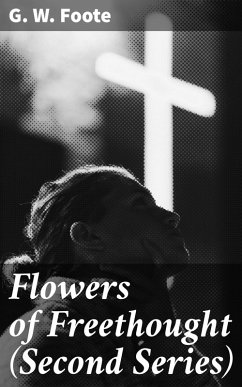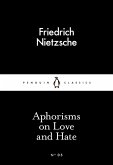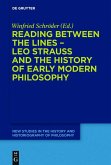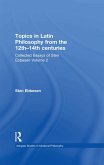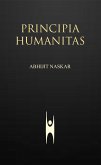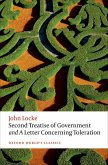In "Flowers of Freethought (Second Series)," G. W. Foote presents a compilation of essays that delve into themes of rationalism, skepticism, and the critique of religion'Äîhallmarks of the freethought movement of the late 19th century. The literary style is both accessible and incisive, blending wit with potent argumentation to challenge dogmatic beliefs. Foote'Äôs engagement with contemporary issues reflects the spirit of his time, amid sweeping changes in social thought and the rise of secular philosophies, making this collection a vital contribution to the discourse on freedom of thought and expression. G. W. Foote, a prominent secularist and freethinker, was deeply influenced by the socio-religious landscape of Victorian England. As the founder of the Freethinker newspaper, Foote's writings often reflected his dedication to promoting rational inquiry over superstition. His polemical style and fervent advocacy for atheism were shaped by his experiences with censorship and challenges from religious establishments, driving him to articulate a vision of a society rooted in empirical truth rather than tradition. "Flowers of Freethought (Second Series)" is highly recommended for readers seeking to understand the intellectual battles fought in the name of reason and secularism. Foote'Äôs powerful arguments and eloquent prose encourage critical thinking and invite readers to reconsider their own beliefs, making this work an essential read for anyone interested in the history of free thought and the evolution of religious skepticism.
Dieser Download kann aus rechtlichen Gründen nur mit Rechnungsadresse in A, B, BG, CY, CZ, D, DK, EW, E, FIN, F, GR, H, IRL, I, LT, L, LR, M, NL, PL, P, R, S, SLO, SK ausgeliefert werden.

